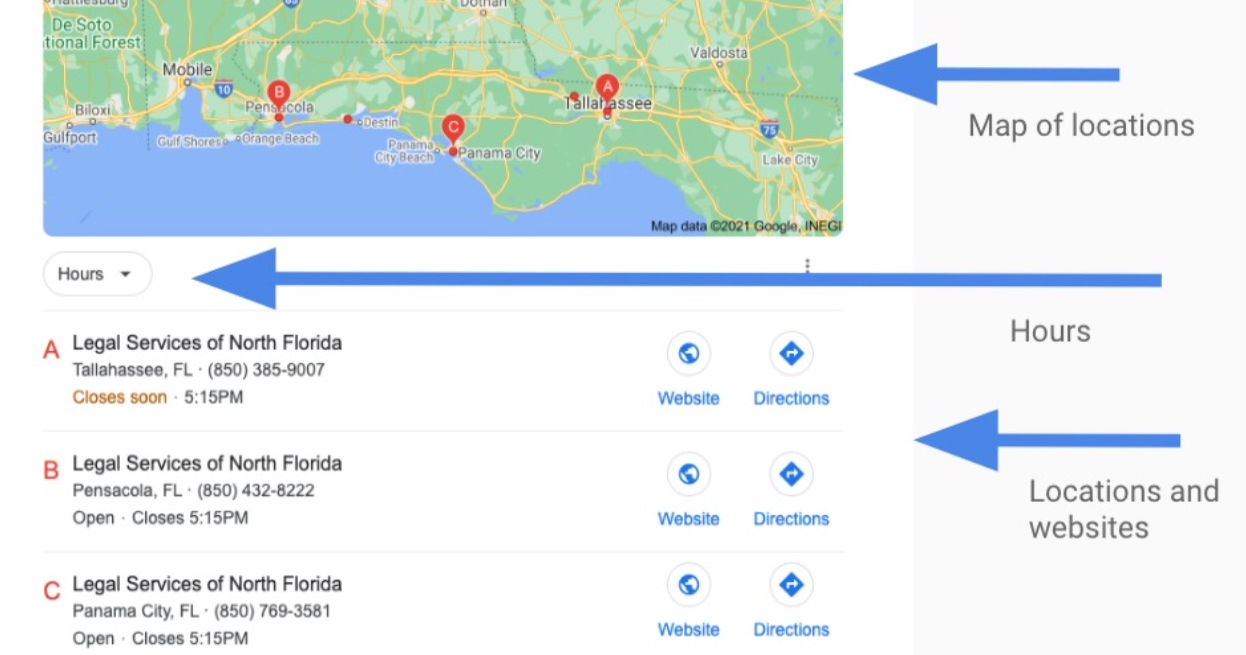Month: April 2022
-

Tackling Data Dilemmas in Social Care Coordination: A Whitepaper on Community Information Exchange
Last year – with sponsorship from Robert Wood Johnson Foundations’ DASH program, and in partnership with the Regional Data Alliance at University of Missouri St Louis – I co-authored a whitepaper that aggregated research and recommendations from across the emerging field of “social care coordination.” This paper provides a strategic framework in which to understand…
-

Improving access to legal aid by improving search results with schema.org
Despite the vast amounts of information on the Web, finding reliable information about legal services through internet searches is harder than many expect. Basic searches — for needs like assistance with evictions, help with public benefits, or protection from domestic violence — often turn bewildering as results on Google, among other search engines, typically seem…
